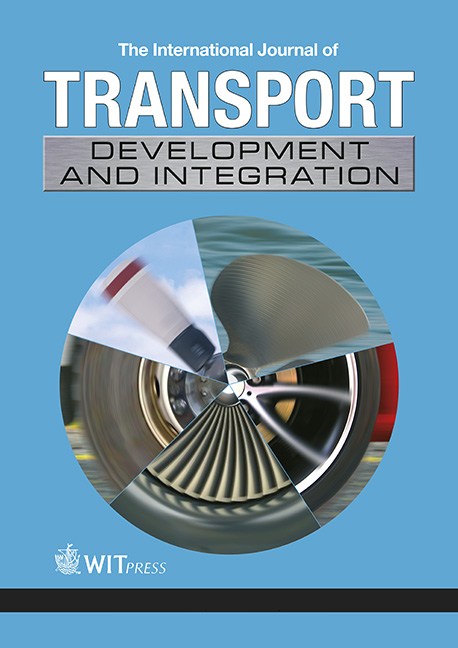A neighbourhood search algorithm for determining optimal intervention strategies in the case of metro system failures
Price
Free (open access)
Volume
Volume 1 (2017), Issue 1
Pages
10
Page Range
63 - 73
Paper DOI
10.2495/TDI-V1-N1-63-73
Copyright
WIT Press
Author(s)
M. Botte, C. Di Salvo, A. Placido, B. Montella & L. D’Acierno
Abstract
In high-density contexts, such as urban or metropolitan areas, decision makers and mobility managers have to adopt suitable strategies to reduce the use of private cars and promote public transport. Indeed, such strategies may help abate the negative impacts of transportation systems (congestion, air and noise pollution, etc.). However, appropriate measures are only effective if based on the provision of high-quality public transport services. Such aims can be achieved by organizing public transport within an integrated framework where rail/metro services are the high-performing mobility backbone and bus services have a feeder function, increasing the geographical coverage of rail services. However, since a faulty train cannot be easily removed or overtaken, a rail/metro system is highly vulnerable to system breakdowns which could entail significant reductions in system quality. Suitable intervention strategies therefore have to be developed to manage rail system emergencies. The aim of this article is to provide a method to determine optimal intervention strategies in the case of a metro system failure. Since in real contexts an exhaustive approach has to be excluded due to the huge number of alternative solutions to be evaluated, it is necessary to adopt or develop appropriate algorithms to obtain sub-optimal solutions within suitable computational times. Hence a Neighbourhood Search Algorithm to identify the optimal solution is applied and tested in the case of a real metro line in order to show the feasibility of our proposal.
Keywords
heuristic algorithms, metro system management, micro-simulation approach, public transport, optimization models, real scale networks




